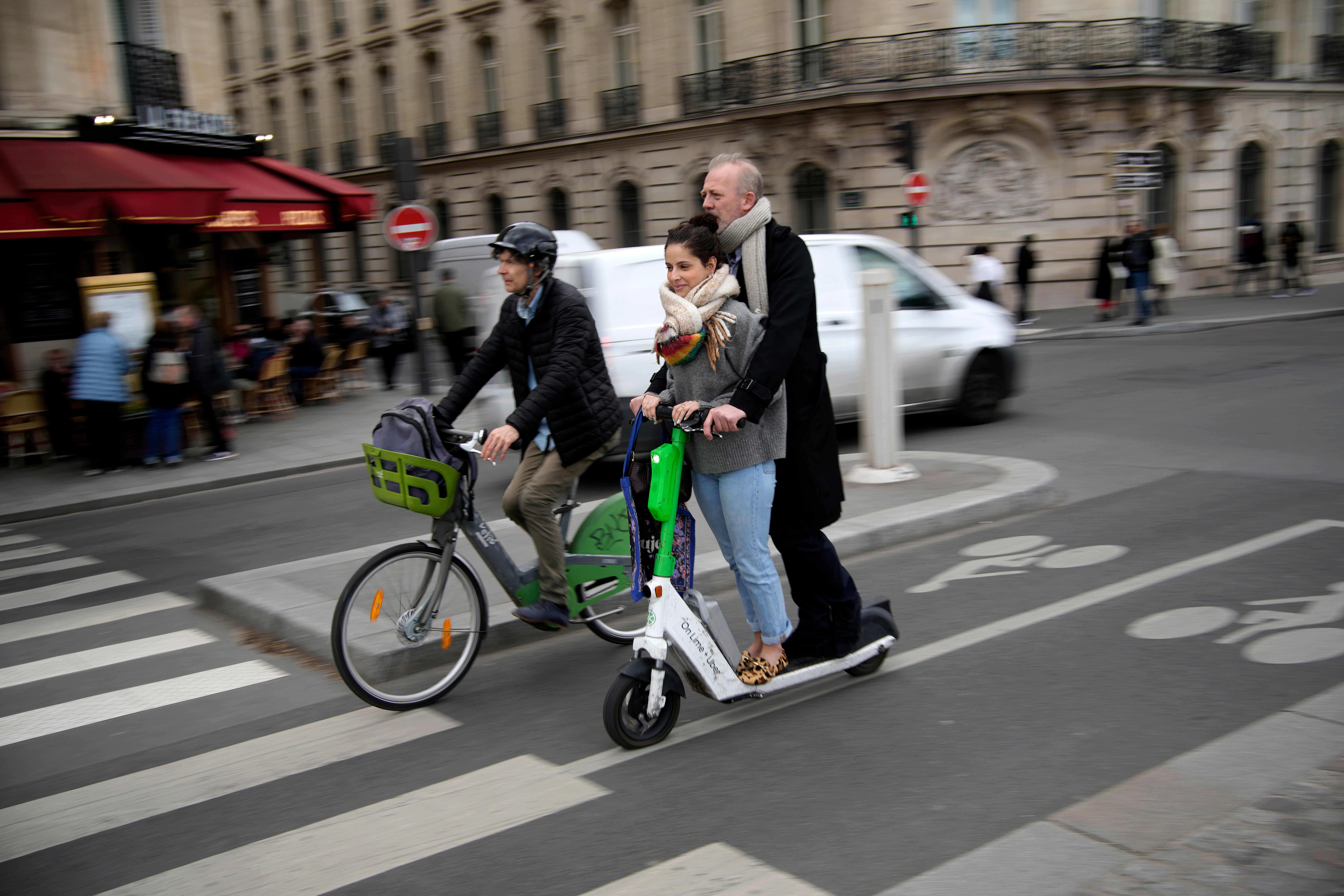Paris bans e-scooters! Pourquoi? That’s what happens when you have a referendum…
E-scooters might not be everyone’s cup of tea, but politicians owe us more when it comes to intricate issues like cars in our cities than asking a simple question that will only give a simple answer


Your support helps us to tell the story
From reproductive rights to climate change to Big Tech, The Independent is on the ground when the story is developing. Whether it's investigating the financials of Elon Musk's pro-Trump PAC or producing our latest documentary, 'The A Word', which shines a light on the American women fighting for reproductive rights, we know how important it is to parse out the facts from the messaging.
At such a critical moment in US history, we need reporters on the ground. Your donation allows us to keep sending journalists to speak to both sides of the story.
The Independent is trusted by Americans across the entire political spectrum. And unlike many other quality news outlets, we choose not to lock Americans out of our reporting and analysis with paywalls. We believe quality journalism should be available to everyone, paid for by those who can afford it.
Your support makes all the difference.Ah, the referendum. The tool of populists down the ages. Can’t face the complexities of detailed policymaking? Then just boil it all down to a very simple question, a blunt instrument, ask the people, and then use their verdict as a club through which to smash up whatever problem it was that was getting on your nerves.
David Cameron used a referendum to accidentally ruin himself. And now, the mayor of Paris, Anne Hidalgo, has used a referendum to pick up roughly 15,000 annoying e-scooters and chuck them, en masse, into the River Seine.
The Parisian zoom-along experiment is over. The people have spoken. Not that many of them, admittedly. Turnout was very low in one of the most niche referendums in European history (a lot of would-be voters, in fairness, were too busy rioting), but the result was clear. Ninety per cent voted in favour of banning e-scooters, and that kind of margin cannot be ignored.
It is, naturally, depressing. Anne Hidalgo has been mayor of Paris for nine years. It was on her watch that Paris became Europe’s revolutionary vanguard in the e-scooter movement, five years ago, while other similar cities were proceeding with extreme caution. And now that many Parisians have decided they are an annoying menace she has, in rather cowardly fashion, roped in the people to do the difficult deed for her.
The key point on the subject of e-scooters is that people seem to be unnerved by how fast they go. By comparison, in central Paris, cars are limited to a top speed of 8 miles an hour, not by any kind of legislation, merely by how many of them there are. People also get annoyed by the scooters being abandoned on pavements. Cars, of course, are never abandoned anywhere, other than lined up on both sides of every street in every major city in the world, giant lumps of metal that spend an average of 99 per cent of their time not being used.
E-scooters are also dangerous. In 2022, in Paris, there were three fatal accidents and a reported 451 injuries, which really doesn’t sound like a lot, but the people have spoken.
According to assessments made by Parisian authorities in advance of the referendum, since their widespread introduction, e-scooters may, by the time they were banned, have replaced as many as 20 per cent of journeys that would otherwise have been taken by car. Now, the following may be a minor crime against maths, but 20 per cent is roughly 1 in 5, which is roughly the same number of people who are pro e-scooter. Perhaps, possibly, the people who actually use them, whose opinions possibly count for more. But not in a referendum, obviously.
Paris, like all of Europe’s best cities, was laid out in the 19th century, with two use types in mind – the pedestrian and the bicycle. And then Paris, like all of Europe’s best cities, was largely ruined by the car. Now, policymakers everywhere are trying to create some kind of tripartite road system, for cars, for pedestrians, and for bicycles and their electronic equivalents, with considerable success in some cases, less so in others.
It should hardly need to be stated that if Parisians find e-scooters annoying, then they are annoyed by a failure of policymaking, not by the very idea of an e-scooter. It should be made harder to abandon them, to chuck them in a river, or for drunk tourists to make menaces of themselves on them. But the direction of travel is abundantly clear. The car, a truly magnificent invention, is a menace to modern city life. It is simply too big an object to carry – more often than not – one person down a single-lane street, before needing somewhere to sit around and wait for the rest of the day.
More innovation is desperately needed – and it is happening fast – to return Europe’s great cities to the old, liveable ways for which they were intended. Busy people, leading busy lives, elect and pay for politicians to confront these complex challenges for them. Policy issues of immense intricacy and complexity are not solved, or indeed improved, by asking the people a simple question and getting a simple answer. Has the mayor of Paris been paying no attention to British politics at all?
Join our commenting forum
Join thought-provoking conversations, follow other Independent readers and see their replies
Comments